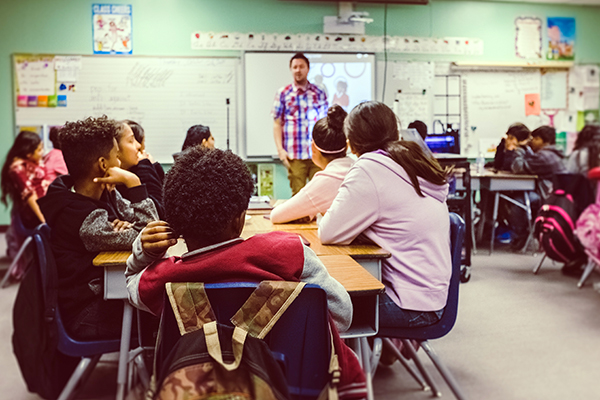In today’s diverse classrooms, it is essential for educators to employ culturally responsive teaching methods to create an inclusive and empowering learning environment for all students. By recognizing and valuing the unique backgrounds and experiences of each student, teachers can foster a sense of belonging, improve student engagement, and ultimately enhance academic achievement.
The Importance of Culturally Responsive Teaching

Culturally responsive teaching is an approach that acknowledges the cultural diversity of students and integrates their cultural backgrounds into the teaching and learning process. It goes beyond simply celebrating different cultures; it involves adapting instructional strategies, materials, and assessments to meet the needs of diverse learners.
By incorporating culturally responsive teaching methods, educators can help students develop a positive self-identity, build strong connections with their peers, and develop a deeper understanding of the world around them. This approach promotes equity, as it ensures that all students have equal access to high-quality education regardless of their cultural backgrounds.
Key Components of Culturally Responsive Teaching
There are several key components that underpin effective culturally responsive teaching methods:
- Building Relationships: Culturally responsive teachers prioritize building authentic relationships with their students. They take the time to understand their students’ cultural backgrounds, interests, and strengths, which helps create a supportive and inclusive classroom environment.
- Recognizing and Valuing Diversity: In culturally responsive classrooms, teachers celebrate and respect the diversity of their students. They integrate diverse perspectives, experiences, and examples into their lessons to make learning more relatable and meaningful for all students.
- Adapting Instruction: Culturally responsive teachers adapt their instructional strategies to accommodate different learning styles and cultural backgrounds. They use a variety of teaching methods, incorporate multicultural literature and resources, and provide opportunities for students to connect their own experiences to the content being taught.
- Creating Culturally Inclusive Curriculum: A culturally responsive curriculum reflects the experiences and histories of diverse cultures. It includes diverse authors, perspectives, and narratives that challenge stereotypes and promote cultural understanding.
- Emphasizing Student Voice: Culturally responsive teachers provide opportunities for student voice and agency in the classroom. They value and incorporate students’ ideas, opinions, and contributions, allowing them to take ownership of their learning.
The Impact of Culturally Responsive Teaching
Culturally responsive teaching methods have a profound impact on students. Research has shown that when students see themselves reflected in the curriculum and feel valued for who they are, their motivation and engagement increase. They become active participants in their own learning and develop a deeper understanding of diverse perspectives.
Culturally responsive teaching also benefits students academically. When instructional strategies are tailored to their cultural backgrounds and learning styles, students are more likely to grasp and retain information. Additionally, it helps reduce achievement gaps by ensuring that all students have equal opportunities to succeed.
Incorporating culturally responsive teaching methods is crucial for creating an inclusive and empowering learning environment. By recognizing and valuing the cultural diversity of their students, teachers can foster a sense of belonging, improve student engagement, and promote academic achievement. Culturally responsive teaching is not just a teaching method; it is a commitment to equity and social justice in education.

